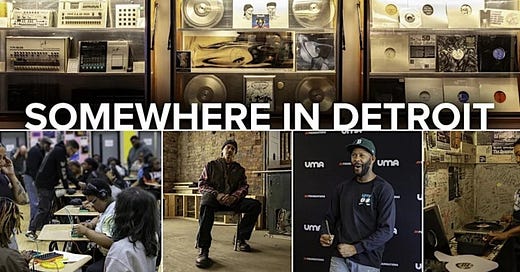From Movement to Method: Yet Another Leadership Lesson from Detroit
Detroit’s music over the decades isn’t just a genre. It’s a blueprint.
What’s striking about the recent documentary, Somewhere in Detroit on Underground Resistance (UR) and Submerge is not just the music — it’s the leadership.
As I wrote in Your Leadership Moment, when factories closed and institutions failed in Detroit — out of scarcity, collapse and contradiction — creativity didn’t stop. It reorganized itself.
In this film, you see a group of young Black artists responding to economic devastation and racialized neglect with something more powerful than critique: they built. Built tracks. Built studios. Built institutions. They took tools — the same drum machines anyone could buy — and created something that didn’t exist before. Something local, global and unapologetically their own.
This is leadership in action.
When the system no longer serves you, you don’t just react. You diagnose, you experiment and you mobilize. You create new capacity — starting with what you have, where you are. You help others rediscover their own capacity for freedom.
UR and Submerge weren’t just record labels. They became schools, sanctuaries and launchpads. They trained artists, protected the integrity of the music and rewrote who got to define the future. Exhibit 3000 — Detroit’s first techno museum, tucked inside Submerge — isn’t nostalgia. It’s infrastructure. It makes clear that this wasn’t a just a moment. It was a series of them — a leadership movement.
And that movement is still evolving.
The Underground Music Academy (UMA), co-founded by Waajeed, is extending that legacy. Its purpose: to cultivate future leaders of electronic music through Detroit-rooted mentorship and education. This isn’t about clout. It’s about continuity. Making sure that knowledge, values and community don’t get lost in the noise.
I’ve long said that if I had another life to live, I’d want it to be in the music studio — as a leadership laboratory. Detroit’s music pioneers never wait for permission. They lead. And in doing so, they give the rest of us a roadmap — not just for music, but for transformation.
There’s something here for anyone thinking about how change really happens. Leadership doesn’t always come with a title. Sometimes it comes with a drum machine. Or a basement studio. Or a refusal to give up on your city, your people or your sound.




